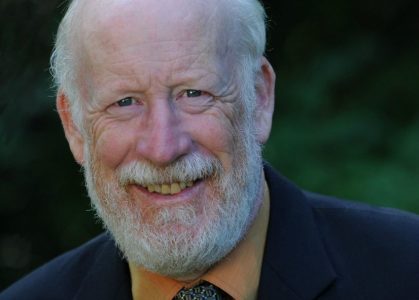Our Electoral System is Crazy
For an armchair political philosopher, the first week of May 2015, with two melodramatic elections, one in Alberta and one in Great Britain, was an intoxicating week. These two elections provided a succinct demonstration of the ill-advised use of the first past the post (FPTP) electoral system. Originating in Britain as the Single Member Plurality (SMP) electoral system, it was first used in Nova Scotia in 1758. That was before the American and French revolutions, a time when the idea of women voting, much less heading a government, was unthinkable. Democracy has evolved enormously over the past two-and-a-half centuries, but we are stubbornly clinging to the archaic SMP electoral system.
Candidates representing nine political parties and 14 independents participated in the recent Alberta election. Nearly 1.49 million citizens went to the polls to cast a ballot. The range of political parties went from the Social Credit Party, former Alberta powerhouse, on the right (6 candidates, 832 votes) to the Communist Party on the left (2 candidates, 181 votes). The range of votes cast went from 40 for one of the independent candidates to over 603,000 for the NDP.
There are more political parties today than could have been imagined in mid-18th century. In terms of governance, a candidate’s base has been displaced by her party affiliation. Today the location of a candidate’s constituency is irrelevant. What matters is the identity of the parties sponsoring candidates, and increasingly the identity of the sponsoring parties’ leaders.
In this respect the Alberta election produced some remarkable and disturbing results. Each NDP candidate elected represents slightly over 11,000 voters. This is in sharp contrast to the more than 62,000 Liberal voters who are now represented by one lone Liberal MLA. The election results provide some downright bizarre statistical comparisons. Nearly 413,000 voters cast their ballot for the Conservatives, that is 53,000 votes more than those the Wildrose Party received, but the system rewarded the Wildrose Party voters with more than twice as many seats as those the Conservative voters realized.
The results from Great Britain’s general election, also under SMP/FPTP rules, are even more grotesque. Twenty-six political parties and a number of independents contested that election. The Conservative Party won a majority of seats (331) on the strength of 11.3 million votes. Nearly 3.9 million Brits voted for the UK Independence Party (UKIP), and for that the system awarded them just one seat! The results on the British left were equally bizarre. The Labour Party’s 9.3 million votes produced 232 seats, while the Scottish National Party won 56 on the strength of just 1.4 million votes. By contrast, the Green Party, with 1.1 million votes, won only one seat.
The Northwest Territories and Nunavut are the only Canadian jurisdictions where the SMP/FPTP electoral system is appropriate. These two jurisdictions do not have political parties. Members of their Legislative Assemblies are elected as independents. Ministers are elected individually by MLAs from within their own ranks. There are no government caucuses and no official oppositions; their cabinets serve at the pleasure of the entire Legislative Assembly. NWT and Nunavut MLAs are not accountable to political parties; they are accountable to the constituencies that elected them.
The SMP/FPTP electoral system does produce fair results only so long as an election is contested by independents or by only two political parties. It is ridiculous to suggest that answers to political issues in a modern democracy can be reduced to just two options: yes/no, either/or, black/white, on/off. Fringe parties are not a threat to democracy (Alberta First Party – 72 votes; Britain’s Class War Party – 526 votes). The right to participate in an electoral process that respects citizens’ rights and treats all their votes equally, however, is a fundamental democratic principle. Electoral reform needs to be recognized as Canada’s most urgent political issue.


























Comments